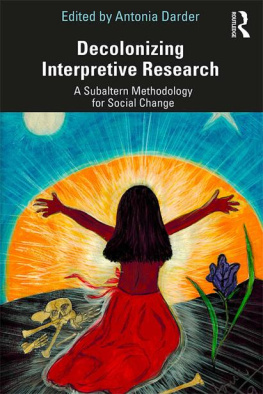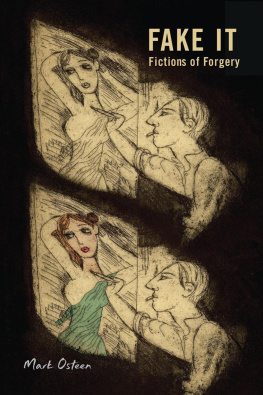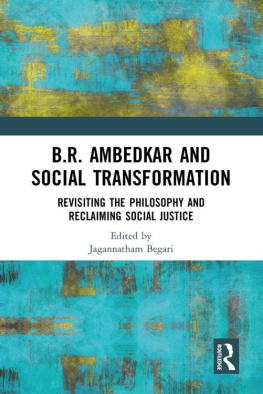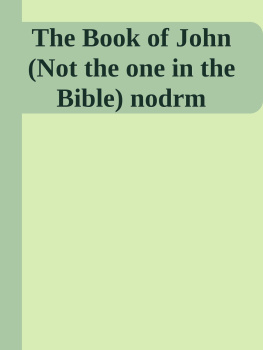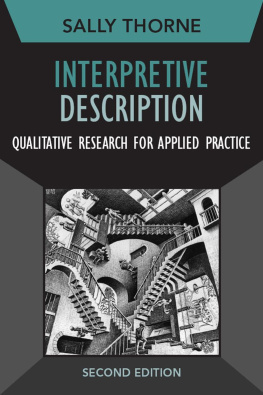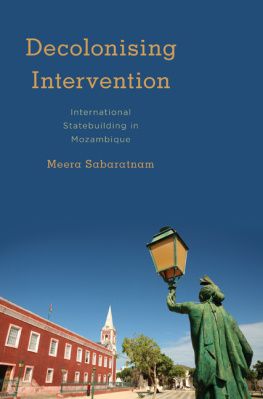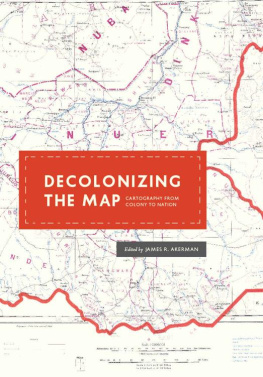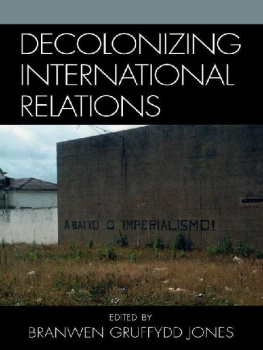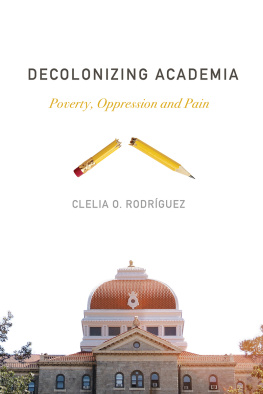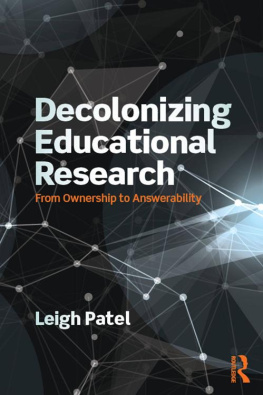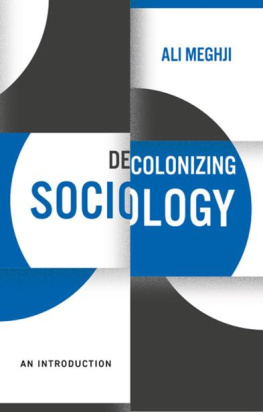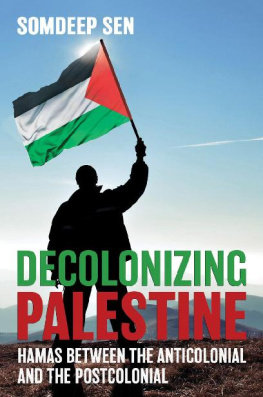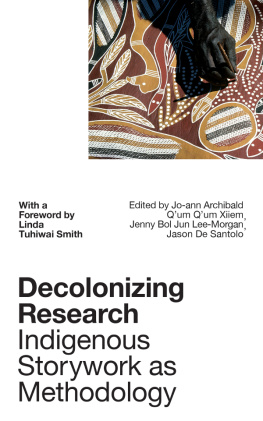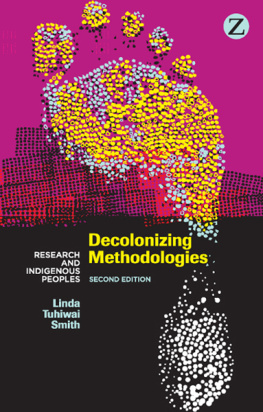Unknown - Decolonizing Interpretive Research
Here you can read online Unknown - Decolonizing Interpretive Research full text of the book (entire story) in english for free. Download pdf and epub, get meaning, cover and reviews about this ebook. year: 2019, publisher: Taylor and Francis, genre: Politics. Description of the work, (preface) as well as reviews are available. Best literature library LitArk.com created for fans of good reading and offers a wide selection of genres:
Romance novel
Science fiction
Adventure
Detective
Science
History
Home and family
Prose
Art
Politics
Computer
Non-fiction
Religion
Business
Children
Humor
Choose a favorite category and find really read worthwhile books. Enjoy immersion in the world of imagination, feel the emotions of the characters or learn something new for yourself, make an fascinating discovery.
Decolonizing Interpretive Research: summary, description and annotation
We offer to read an annotation, description, summary or preface (depends on what the author of the book "Decolonizing Interpretive Research" wrote himself). If you haven't found the necessary information about the book — write in the comments, we will try to find it.
Unknown: author's other books
Who wrote Decolonizing Interpretive Research? Find out the surname, the name of the author of the book and a list of all author's works by series.
Decolonizing Interpretive Research — read online for free the complete book (whole text) full work
Below is the text of the book, divided by pages. System saving the place of the last page read, allows you to conveniently read the book "Decolonizing Interpretive Research" online for free, without having to search again every time where you left off. Put a bookmark, and you can go to the page where you finished reading at any time.
Font size:
Interval:
Bookmark:

Amongst the long-needed intersection between education and decolonization, this book offers that rare mix of theory intertwined with action. Darder makes clear that to decolonize can happen in myriad ways, but not without intention, connection, and a stance of learning.
Professor Leigh Patel, Associate Dean for Equity and Justice, School of Education, University of Pittsburgh
Decolonizing Interpretive Research audaciously brings to the fore subaltern voices that not only interrogate so-called objective lenses used to research the other, but also offers emancipatory, humanistic, and organic ways in which the oppressed can document and tell their stories. This is a cutting-edge book that challenges western research orthodoxies while transcending disciplinary boundaries.
Professor Pierre W. Orelus, Associate Professor and Department Chair, School of Education, Fairfield University
Decolonizing Interpretive Research: A Subaltern Methodology for Social Change brings the literature of critical, anti-colonial, postcolonial studies to bear on the process and methods of research in a manner that enacts scholarly production as social action. Antonia Darder as teacher foregrounds the work of her students, dismantling the hierarchies of voice and power. Together they engage research as a communal process, working as revolutionary partners pushing through and against established limits of how research is defined. The dissident voices of the students peel back layers of the colonial matrix with each chapter; their words flowing as affirmations of social change in the making.
Professor Sandy Grande, Chair of the Education Department, Connecticut College
To what extent do Western political and economic interests distort perceptions and affect the Western production of research about the other? The concept of colonializing epistemologies describes how knowledges outside the Western purview are often not only rendered invisible but either absorbed or destroyed.
Decolonizing Interpretive Research outlines a form of oppositional study that undertakes a critical analysis of bodies of knowledge in any field that engages with issues related to the lives and survival of those deemed as other. It focuses on creating intellectual spaces that will facilitate new readings of the world and lead toward change, both in theory and practice. The book begins by conceptualizing the various aspects of the decolonizing interpretive research approach for the reader, and the following six chapters each focus on one of these issues, grounded in a specific decolonizing interpretive study.
With a foreword by Linda Tuhiwai Smith, this book will allow readers to not only engage with the conceptual framework of this decolonizing methodology but will also give them access to examples of how the methodology has informed decolonizing interpretive studies in practice.
Antonia Darder holds the Leavey Endowed Chair of Ethics and Moral Leadership at Loyola Marymount University and is Distinguished Visiting Faculty at the University of Johannesburg. She has published numerous books and her work focuses on political questions and ethical concerns linked to racism, class inequalities, language rights, critical pedagogy, cultural studies, and Latino education. More recently, her work has sought to contend with pedagogical questions of the body and the persistent impact of coloniality on community leadership and empowerment.
DECOLONIZING INTERPRETIVE RESEARCH
A Subaltern Methodology for Social Change
Edited by Antonia Darder

First published 2019
by Routledge
2 Park Square, Milton Park, Abingdon, Oxon OX14 4RN
and by Routledge
52 Vanderbilt Avenue, New York, NY 10017
Routledge is an imprint of the Taylor & Francis Group, an informa business
2019 selection and editorial matter, Antonia Darder; individual chapters, the contributors
The right of Antonia Darder to be identified as the author of the editorial material, and of the authors for their individual chapters, has been asserted in accordance with sections 77 and 78 of the Copyright, Designs and Patents Act 1988.
All rights reserved. No part of this book may be reprinted or reproduced or utilised in any form or by any electronic, mechanical, or other means, now known or hereafter invented, including photocopying and recording, or in any information storage or retrieval system, without permission in writing from the publishers.
Trademark notice: Product or corporate names may be trademarks or registered trademarks, and are used only for identification and explanation without intent to infringe.
British Library Cataloguing in Publication Data
A catalogue record for this book is available from the British Library
Library of Congress Cataloging-in-Publication Data
Names: Darder, Antonia, editor.
Title: Decolonizing interpretive research : a subaltern methodology for social change / edited by Antonia Darder.
Description: Abingdon, Oxo n; New York, N Y: Routledge, 2019. | Includes bibliographical references and index.
Identifiers: LCCN 2019004032| ISBN 9781138486607 (hardback) | ISBN 9781138486614 (pbk.) | ISBN 9781351045070 (ebook)
Subjects: LCSH: Critical pedagogy. | Knowledge, Theory of. | Educatio--Research. | Social change.
Classification: LCC LC196 .D43 2019 | DDC 121--dc23
LC record available at https://lccn.loc.gov/2019004032
ISBN: 978-1-138-48660-7 (hbk)
ISBN: 978-1-138-48661-4 (pbk)
ISBN: 978-1-351-04507-0 (ebk)
Antonia Darder
Kortney Hernandez
Emily Estioco Bautista
Kenzo Bergeron
Bibinaz Pirayesh
Terrelle Billy Sales
Joo Paraskeva
Emily Estioco Bautista holds an Ed.D. in Educational Leadership for Social Justice from Loyola Marymount University. She is a former high school social studies teacher and the current Director of Curriculum and Instruction for Transformation and Assistant Principal at YouthBuild Charter School of California. She is a founding member of the Peoples Education Movement based in Los Angeles. As a scholar activist, her scholarship is informed by her personal experience as a student leader and organizer, as she applies critical, decolonizing, and healing justice lenses to explore, engage, and create transformative possibilities in intergenerational organizing and youth movements.
Kenzo Bergeron holds an Ed.D. in Education Leadership for Social Justice from Loyola Marymount University. Currently, he is the lead mathematics specialist at Village School, California. Bergerons research explores the intersection of psychology and education as they work to negatively impact subaltern populations. He is the author of Challenging the Cult of Self-Esteem in Education: Education, Psychology, and the Subaltern Self.
Antonia Darder, born in Puerto Rico, is a distinguished international critical educational scholar. She is a public intellectual, educator, writer, activist, and artist. Darder holds the Leavey Presidential Endowed Chair of Ethics and Moral Leadership at Loyola Marymount University, Los Angeles; is Distinguished Visiting Professor of Education at the University of Johannesburg; and is Professor Emerita of Education Policy, Organization, and Leadership at the University of Illinois Urbana Champaign. She is an American Educational Research Association Fellow and recipient of the AERA Scholars of Color Lifetime Contribution Award. She is the author of numerous books and articles in the field, including
Font size:
Interval:
Bookmark:
Similar books «Decolonizing Interpretive Research»
Look at similar books to Decolonizing Interpretive Research. We have selected literature similar in name and meaning in the hope of providing readers with more options to find new, interesting, not yet read works.
Discussion, reviews of the book Decolonizing Interpretive Research and just readers' own opinions. Leave your comments, write what you think about the work, its meaning or the main characters. Specify what exactly you liked and what you didn't like, and why you think so.

